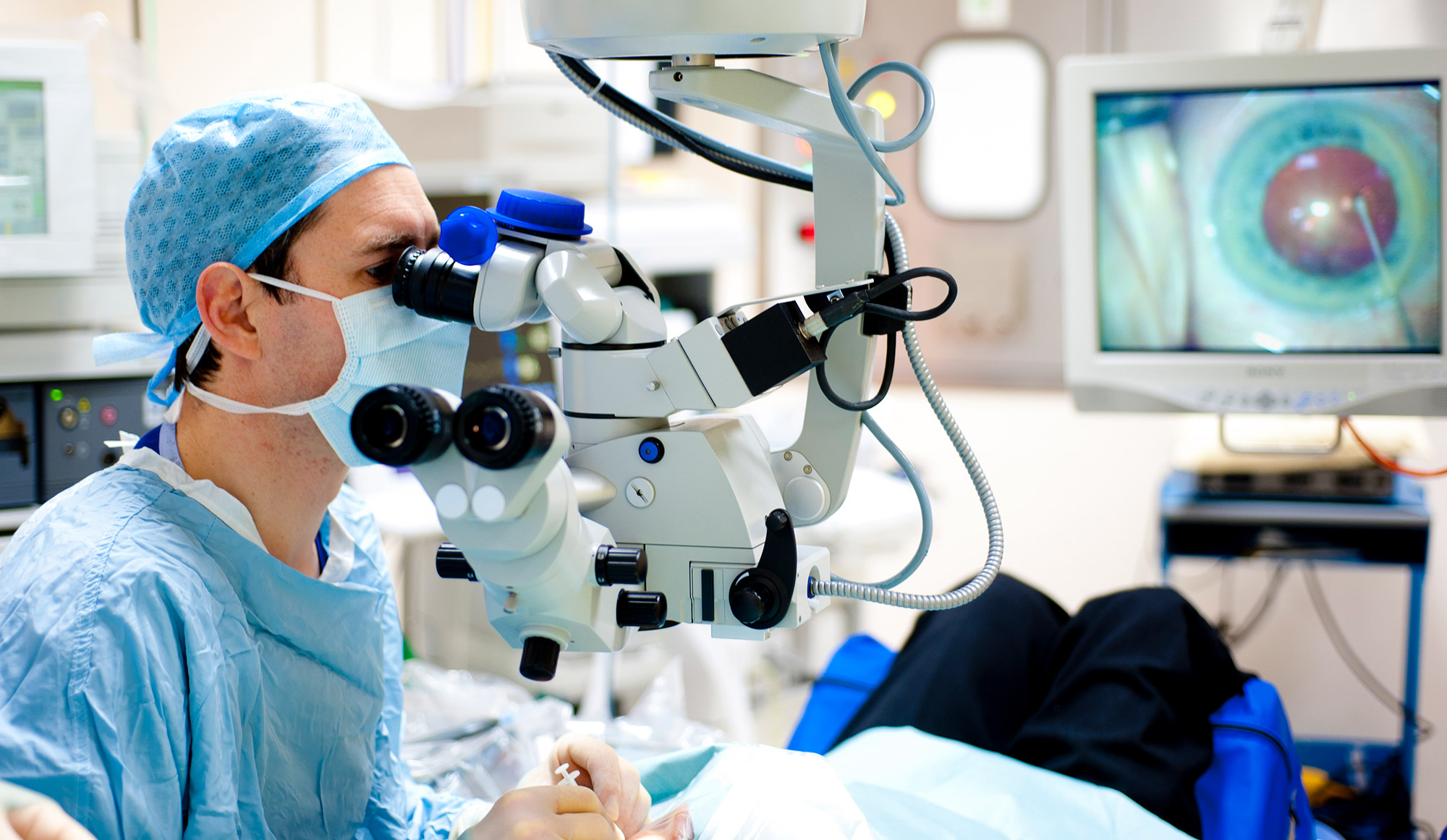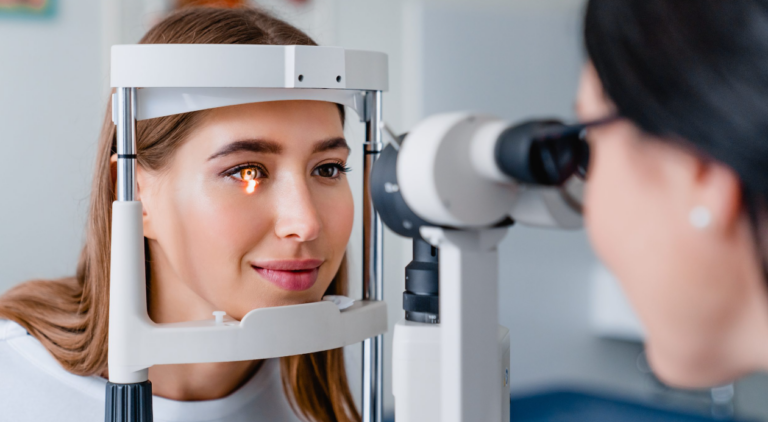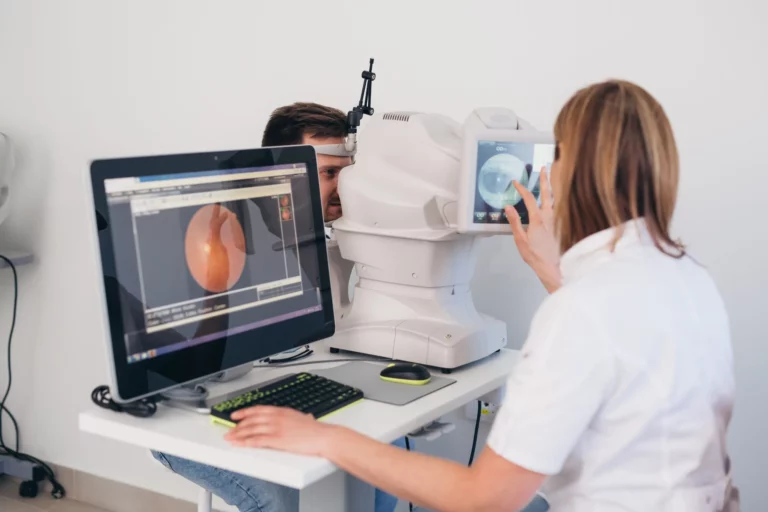Retinal eye care is an integral part of maintaining overall vision health. The retina plays a crucial role in how we perceive the world around us, and understanding its significance can lead to better preventive measures and treatments. This article explores various aspects of retinal eye care, including its importance, preventive measures, non-surgical and surgical treatment options, and essential post-treatment care.
Understanding the Importance of Retinal Eye Care
The retina, located at the back of the eye, is responsible for converting light into neural signals that the brain interprets as images. It is vital for our day-to-day functioning, influencing everything from our ability to read to our overall quality of life. Consequently, healthy retinal function is essential for effective vision.
Aside from its direct impact on vision, the health of the retinal eye can be an indicator of systemic health issues such as diabetes and hypertension. Therefore, maintaining retinal health can also contribute to the identification and management of these underlying health conditions. Regular eye examinations can help detect early signs of these diseases, allowing for timely interventions that can prevent further complications.
The Role of the Retina in Vision
The retina contains photoreceptor cells known as rods and cones, which are responsible for converting light into signals for the brain. Rods are essential for night vision, while cones allow us to perceive color and detail. This complex process is facilitated by various retinal layers working together, making the retina a critical component of the visual system. The intricate arrangement of these cells ensures that we can adapt to different lighting conditions, providing us with the ability to see in both bright daylight and dim environments.
Moreover, the macula, situated within the retina, contributes to sharp central vision, allowing for activities such as reading and recognizing faces. This small but crucial area is densely packed with cones, which are responsible for high-resolution vision. Understanding these functionalities underlines the need for comprehensive retinal care. Additionally, the health of the macula can significantly influence our ability to engage in daily tasks, making it imperative to monitor its condition closely.
Common Retinal Eye Conditions
Common retinal eye conditions include diabetic retinopathy, age-related macular degeneration (AMD), and retinal detachment. Diabetic retinopathy is a complication of diabetes that damages the blood vessels in the retina. Age-related macular degeneration primarily affects the macula, leading to vision loss in older adults. Retinal detachment, on the other hand, occurs when the retina separates from the underlying tissue, posing an immediate vision threat. Early symptoms of retinal detachment can include sudden flashes of light or a curtain-like shadow over the field of vision, which necessitates urgent medical attention.
Each of these conditions requires timely diagnosis and intervention to preserve vision, emphasizing the importance of regular eye check-ups. Furthermore, lifestyle choices such as maintaining a healthy diet rich in antioxidants, managing blood sugar levels, and avoiding smoking can significantly reduce the risk of developing these retinal conditions. Awareness of family history and genetic predispositions can also play a critical role in proactive eye care, enabling individuals to take preventive measures and seek appropriate screenings based on their risk factors.
Preventive Measures for Retinal Health
Preventive measures play a crucial role in maintaining retinal health. By implementing proactive strategies, individuals can reduce their risk of developing serious retinal conditions. These measures often include lifestyle changes and routine screenings.
Regular Eye Check-ups
Regular eye exams are essential for early detection of retinal diseases. Optometrists or ophthalmologists can assess retinal health through comprehensive eye tests, which may include imaging techniques like optical coherence tomography (OCT). Early diagnosis can lead to timely interventions and improved outcomes.
It is generally recommended to have annual eye exams, particularly for individuals with risk factors such as diabetes, high blood pressure, or a family history of retinal diseases. These check-ups provide crucial insights into overall eye health and help monitor any changes that may occur over time. Additionally, during these visits, eye care professionals can educate patients about the importance of recognizing early symptoms of retinal issues, such as blurred vision or sudden flashes of light, which can be indicative of more serious conditions like retinal detachment.
Healthy Lifestyle Choices
Adopting healthy lifestyle choices can significantly impact retinal health. A balanced diet rich in antioxidants—found in fruits and vegetables—can help combat oxidative stress in the eye. Nutrients such as omega-3 fatty acids, vitamins C and E, and zinc play vital roles in maintaining retinal health.
Additionally, engaging in regular physical activity can help reduce the risk of obesity and related conditions such as diabetes, which is closely linked to retinal diseases. Limiting alcohol consumption and avoiding smoking are other critical factors that can help preserve vision. Furthermore, staying hydrated is often overlooked but is essential for maintaining optimal eye function. Drinking plenty of water can help ensure that the eyes remain lubricated and can aid in the prevention of dry eye syndrome, which can exacerbate discomfort and lead to further complications if left unaddressed.
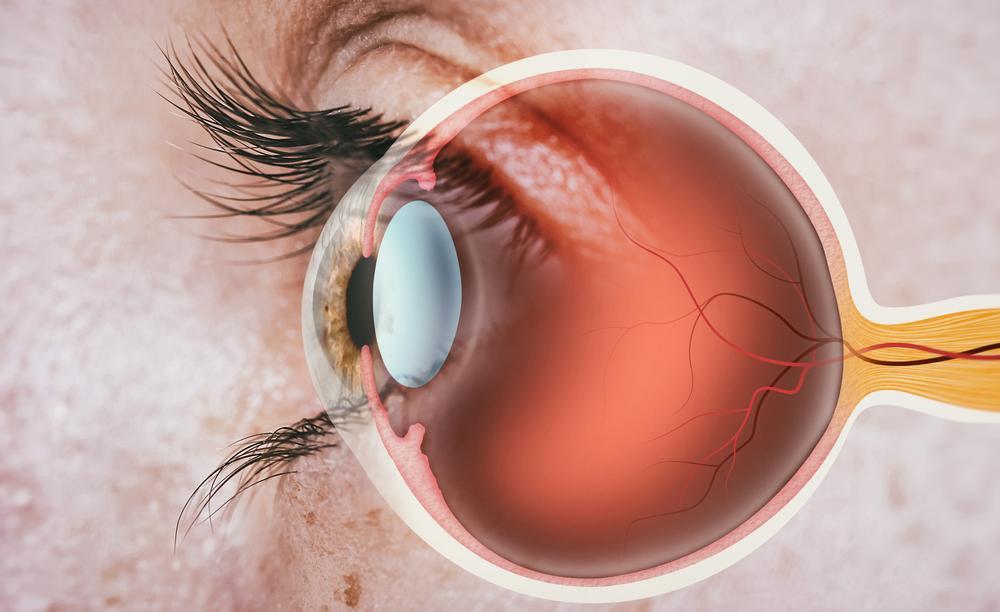
Non-Surgical Treatment Options
When it comes to managing retinal conditions, non-surgical treatment options are often the first line of defense. These approaches can be effective for various conditions and may help prevent further deterioration of vision.
Medications for Retinal Diseases
Several medications are available to treat specific retinal diseases. Anti-vascular endothelial growth factor (anti-VEGF) injections are commonly used in cases of wet age-related macular degeneration and diabetic macular edema. These medications work to inhibit abnormal blood vessel growth and reduce fluid leakage, helping to stabilize or improve vision.
Other types of medications may include corticosteroids to reduce inflammation or oral medications for underlying systemic conditions that could affect the retina. Close monitoring by an eye care professional is essential to evaluate the effectiveness of these medications. Additionally, advancements in pharmacological treatments continue to emerge, with ongoing research exploring new drug formulations and delivery methods that could enhance efficacy and minimize side effects. This progress is particularly promising for patients who may not respond well to existing therapies.
Vision Therapy and Rehabilitation
Vision therapy and rehabilitation programs can also assist individuals facing challenges in vision due to retinal issues. These programs are tailored to strengthen the visual system and improve functional vision.
Activities within these programs may include eye exercises, visual processing skills training, and adaptive techniques to enhance daily living. They are particularly beneficial for patients recovering from retinal surgeries or those managing chronic retinal conditions. Furthermore, these rehabilitation programs often incorporate the use of assistive technologies such as magnifying devices, specialized computer software, and even virtual reality tools designed to enhance visual skills and provide immersive training experiences. By addressing the unique needs of each patient, vision therapy can significantly improve quality of life and foster greater independence in everyday activities.
Surgical Treatment Options for Retinal Conditions
If non-surgical interventions are insufficient, surgical options may be considered. These procedures can address various retinal issues and can sometimes restore or improve vision.
Laser Surgery
Laser surgery is a common procedure used to treat several retinal conditions, including diabetic retinopathy and retinal tears. During the procedure, a focused beam of light is used to seal leaking blood vessels or repair tears in the retina.
This minimally invasive technique can help prevent vision loss and even improve existing vision issues by stabilizing the retinal condition. The rapid recovery time involved in laser surgery makes it an attractive option for many patients. Moreover, advancements in laser technology have led to more precise and effective treatments, reducing the risk of complications and enhancing the overall success rate. Patients often report minimal discomfort during the procedure, which can typically be performed on an outpatient basis, allowing individuals to return to their daily activities shortly after.
Vitrectomy and Other Procedures
Vitrectomy is another surgical option that involves the removal of the vitreous gel from the eye to access the retina. This procedure can be necessary in cases of retinal detachment, severe diabetic retinopathy, or persistent vitreous bleeding.
Other procedures may include pneumatic retinopexy, scleral buckle surgery, and subretinal implantation. The choice of surgery depends on the specific condition and the retina’s overall health, as determined by an eye care professional. Additionally, the decision-making process often involves a thorough discussion of the potential risks and benefits associated with each surgical option. For instance, while vitrectomy can be highly effective in addressing severe retinal issues, it may also involve a longer recovery period and potential complications such as cataract formation or infection. Therefore, a comprehensive evaluation and personalized treatment plan are essential to achieving the best possible outcomes for patients facing retinal challenges.
Post-Treatment Care and Maintenance
Following treatment for retinal conditions, post-treatment care is essential to ensure ongoing eye health. Proper aftercare can significantly influence recovery outcomes and long-term vision health. It is vital for patients to understand that the journey to recovery does not end with the treatment itself; rather, it is a continuous process that requires attention and commitment.
Follow-up Appointments and Monitoring
Regular follow-up appointments are crucial after any retinal treatment. These visits allow eye care professionals to monitor healing and assess the effectiveness of the chosen treatment. Additional imaging tests may be conducted during these visits to evaluate the condition of the retina over time. These tests, such as optical coherence tomography (OCT) or fluorescein angiography, provide detailed images that help in tracking any changes in the retinal structure, enabling timely interventions if necessary.
Patients should also be vigilant about reporting any changes in vision, such as sudden blurriness or the appearance of floaters, to their healthcare provider promptly. It is important to remember that some symptoms may indicate complications that require immediate attention, so maintaining open lines of communication with healthcare providers is critical. Keeping a journal of any vision changes can also be beneficial, as it allows patients to provide detailed information during their appointments.
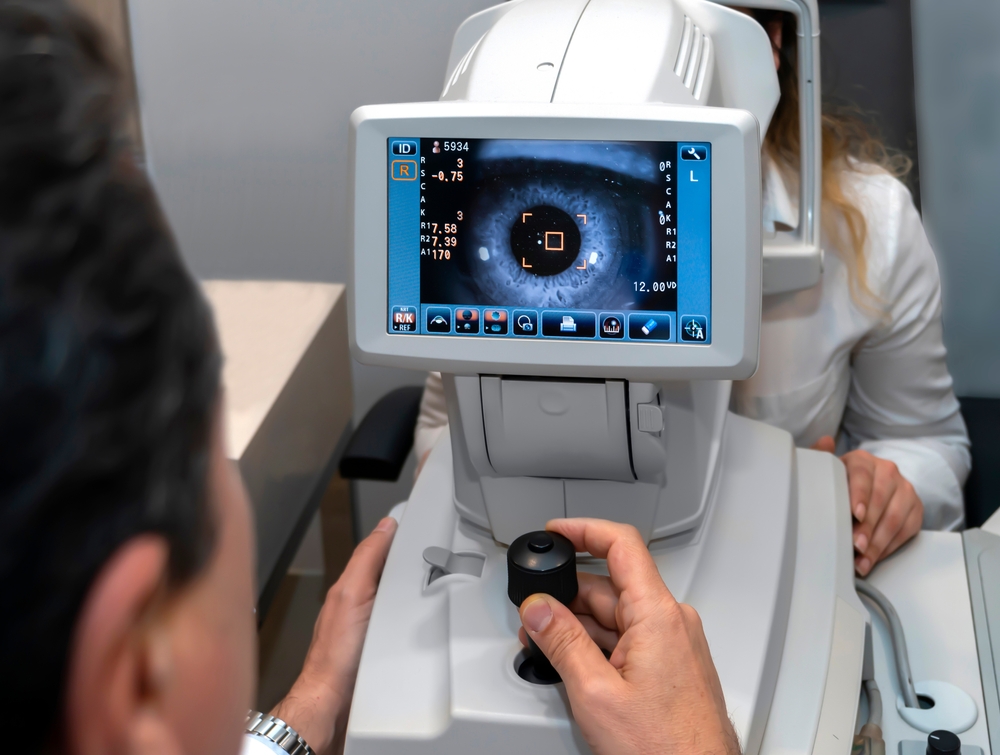
Long-Term Retinal Health Management
Long-term management of retinal health involves ongoing lifestyle modifications and regular screenings. Maintaining a healthy lifestyle, as previously discussed, can contribute to the longevity of retinal health. This includes a balanced diet rich in antioxidants, regular exercise, and avoiding smoking, all of which can help reduce the risk of further retinal issues. Additionally, regular eye exams are essential, as they can help detect early signs of potential problems before they escalate.
Furthermore, continuous education about potential warning signs and symptoms of retinal diseases is essential. Patients should familiarize themselves with conditions such as diabetic retinopathy, age-related macular degeneration, and retinal detachment, among others. Understanding these conditions can empower patients to take proactive measures in their eye health management. By taking proactive steps and working closely with eye care professionals, individuals can significantly improve their retinal health outcomes, ensuring that their vision remains sharp and their quality of life intact. Engaging in support groups or educational seminars can also provide valuable resources and community support for those navigating life after retinal treatment.
See Also: How to find a retinal specialist for effective eye care.

